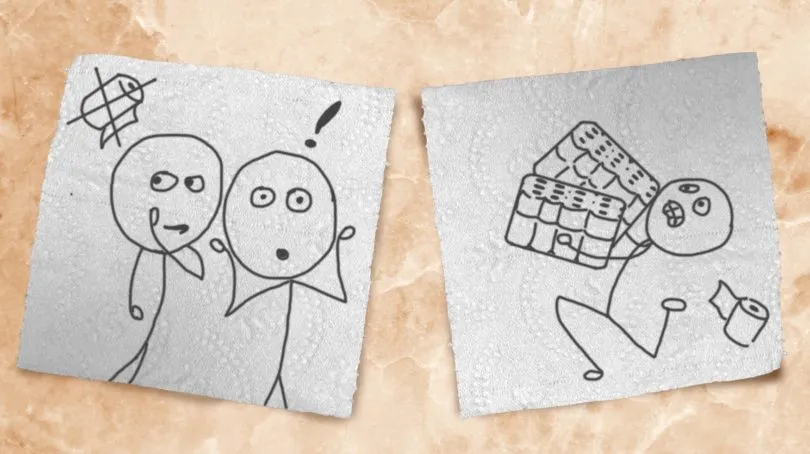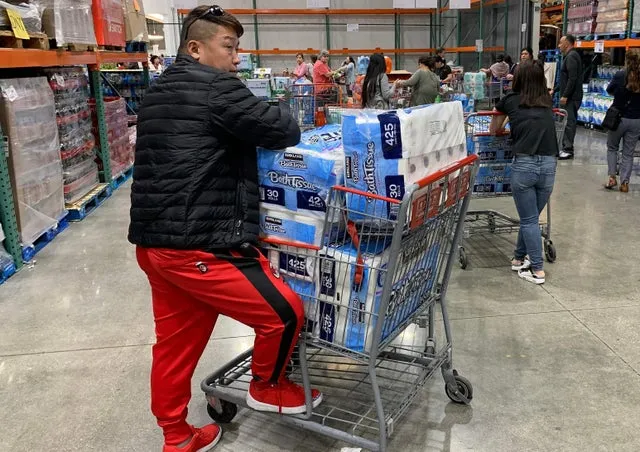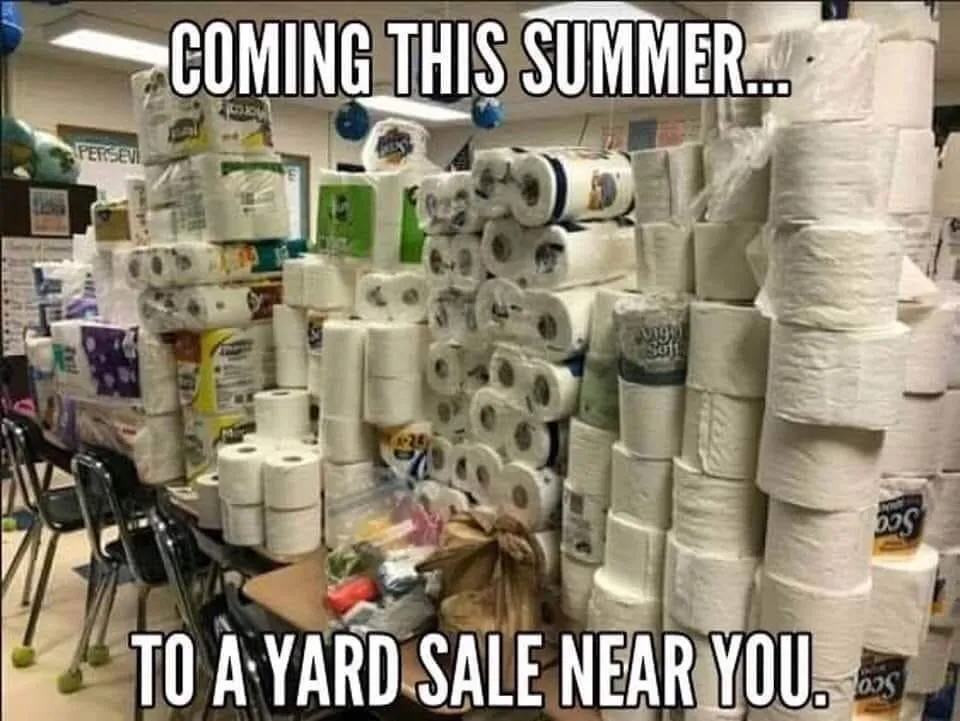
One form of the "zero-risk bias” is the phenomenon when frightened and desperate people attempt to assert at least a little control over some part of a situation that is out of their control. When faced with this unprecedented perplexing dilemma, they cannot fathom all the ways to seize control and prepare for an unknowable worst, but they feel they must do something! The mind boggles and races. "What will we need to make it through a long isolation? Most food will spoil, but tp will not. It will last long past the quarantine." So people make the simple, easy and risk-free decision to stock up on the things which never expire but which they know they'll need all their life. "At least there is no risk of me running out of it!" they think, and the comforting thought provides them emotional reassurance that they have done something productive.

Then, since anxiety, panic, irrationality and even sometimes good sense is contagious, the idea catches on like a bush-fire in the minds of panicked, week-minded men. It makes sense to other anxious people who feel helpless but wish to be proactive, and a stampede is begun. Adding to this frenzy is the thought that suppliers themselves will run out or go out of business, and so more people buy even more. Then the notion vaguely settles in (although few people caught up in the stampede could articulate these simple economic principles) that it will become valuable once supply is exhausted and demand increases. So people begin not just stocking up, but hoarding because it is no longer merely good precaution but a good investment. Soon, this self-reinforcing cycle of fear and mistaken proaction empties the shelves and fills people's garages.
But, ironically, it is at precisely this point that TP producers can actually slash their production output. They were already operating at capacity previously because the demand on TP is knowable and inelastic in the economic sense (unless one is a mummy or an incorrigible prankster, a person really only needs a certain amount of it every day), so once all the panicked people have stocked up, the demand drops precipitously, and the shelves are simply replenished within one regular shopping cycle. If the producers continued to produce at full capacity, they'll soon create a glut, and the added cost of storing excess supply will cut into their profit margins. Those of us who didn't stock up unnecessarily will be able to take advantage of incredibly cheap prices on the products once people who did try to snicker, dump their overstocked supply.

So, fear not! The competitive marketplace, utilising the magic of the free price system, which sensitively and perpetually registers the infinite wants and scarce means of an entire people, will spontaneously and instantaneously calibrate a price-point that is always an almost perfect equilibrium between supply and demand to constantly guide suppliers to produce the most desired goods in the proper quantities. -All without a government mastermind directing any of these demands or productive energies!
In other words, the demand for TP shall never cease and so under capitalism, we're not going to run out of toilet paper. However, under socialism the government directs our productive energies toward its imagined goals rather than the things we the people vote for with when we freely make our own buying decisions. This not only disrupts the price system and produces shortages and surpluses with inordinate prices, when catastrophe strikes or we're having an economic emergency, our productive energies need to be marshalled toward our political leaders' goals, and so we'll not be permitted to produce luxuries like toilet paper and the shelves soon become permanently empty.
